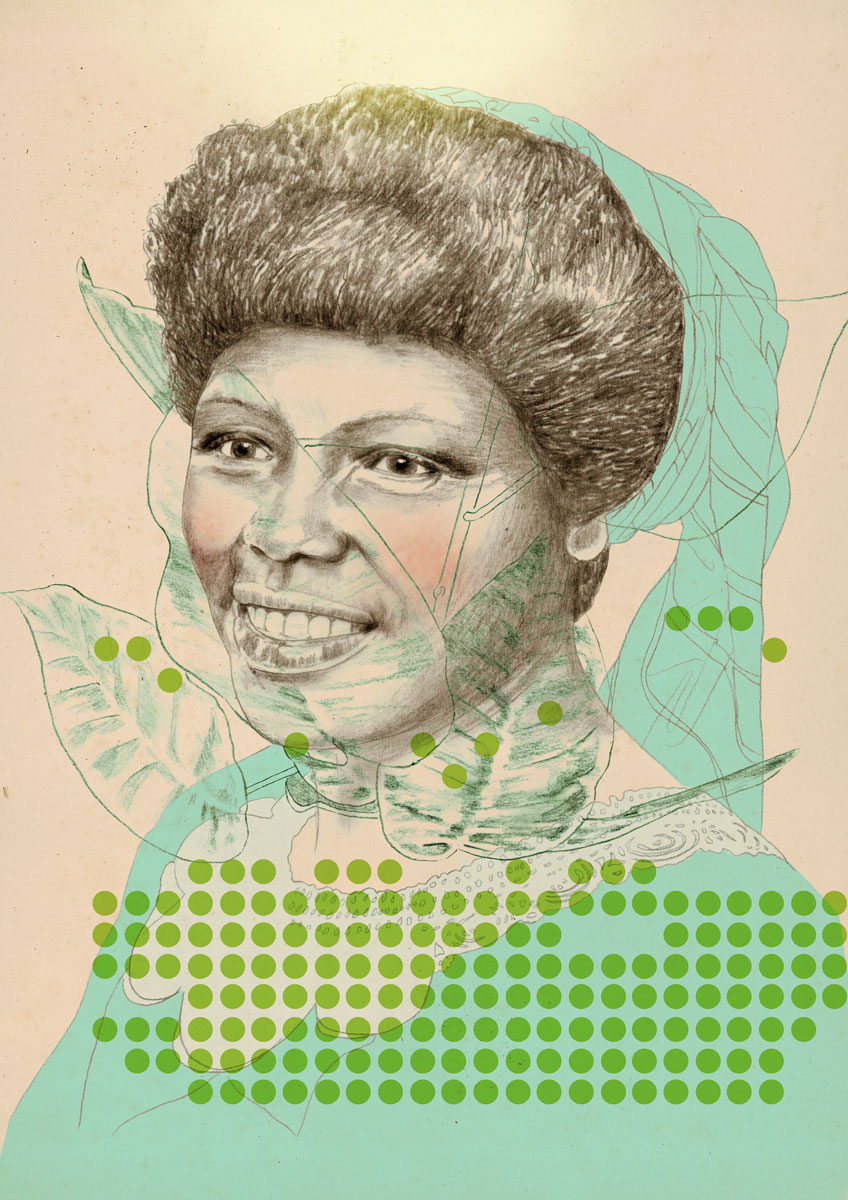
Wangari Maathai
Wangari Muta Maathai | Professor, Politician
* 1 April 1940, village of Ihithe, Nyeri District | + 25 September 2011 in Nairobi
The first African woman to be awarded a doctorate degree in 1966, Wangari Maathai was also the first African woman to win a Nobel Peace Prize in 2004. Unwavering in her mission to fight for sustainable development, human rights and democracy, Wangari was brave, strong and innovative.
Wangari was considered particularly remarkable in her home country. A biologist, she was first Kenyan woman to be educated to doctorate level and the first female Kenyan professor at the University of Nairobi. She was also a self-confident divorcee. All of her achievements were made against the odds, having grown up in dire poverty and excessively restrictive patriarchal society.

Wangari inspired and encouraged Kenyan women in particular not to let anything or anyone stop them from determining their own lives and careers. She became most identifiable figure of the women’s movement in Kenya and was chairperson of the National Council of Women from 1981.
Wangari garnered many accolades for political engagement as well as for being the founder of the Green Belt Movement. She encouraged women to start tree nurseries and create green belts in order to make the land fertile again after decades of deforestation. Wangari’s organisation paid women for every seedling planted and for many this was the first money they had earned themselves. Over the years, the environmental organisation against desertification planted around 50 million trees in Kenya and other African countries. The Green Belt Movement also trained thousands of women in a range of professions, advocated for peace and reconciliation, and bolstered the rights of women in Kenya.
Wangari disrupted the political establishment with her fearless nature. The international public often performed the role of shielding her against the numerous political threats and intimidation attempts in Kenya. During her lifetime, Wangari was slandered, attacked, imprisoned and condemned by powerful elites in her home country. As a result, her husband, who held one of the most lucrative posts in parliament, filed for divorce. The grounds he gave for the divorce say it all: his wife was „too educated, too strong and too difficult to control“.
The Green Belt Movement she founded and other social movements in Kenya still actively preserve Wangari Maathai’s legacy as an ecologist, women’s rights activist, and peacemaker.